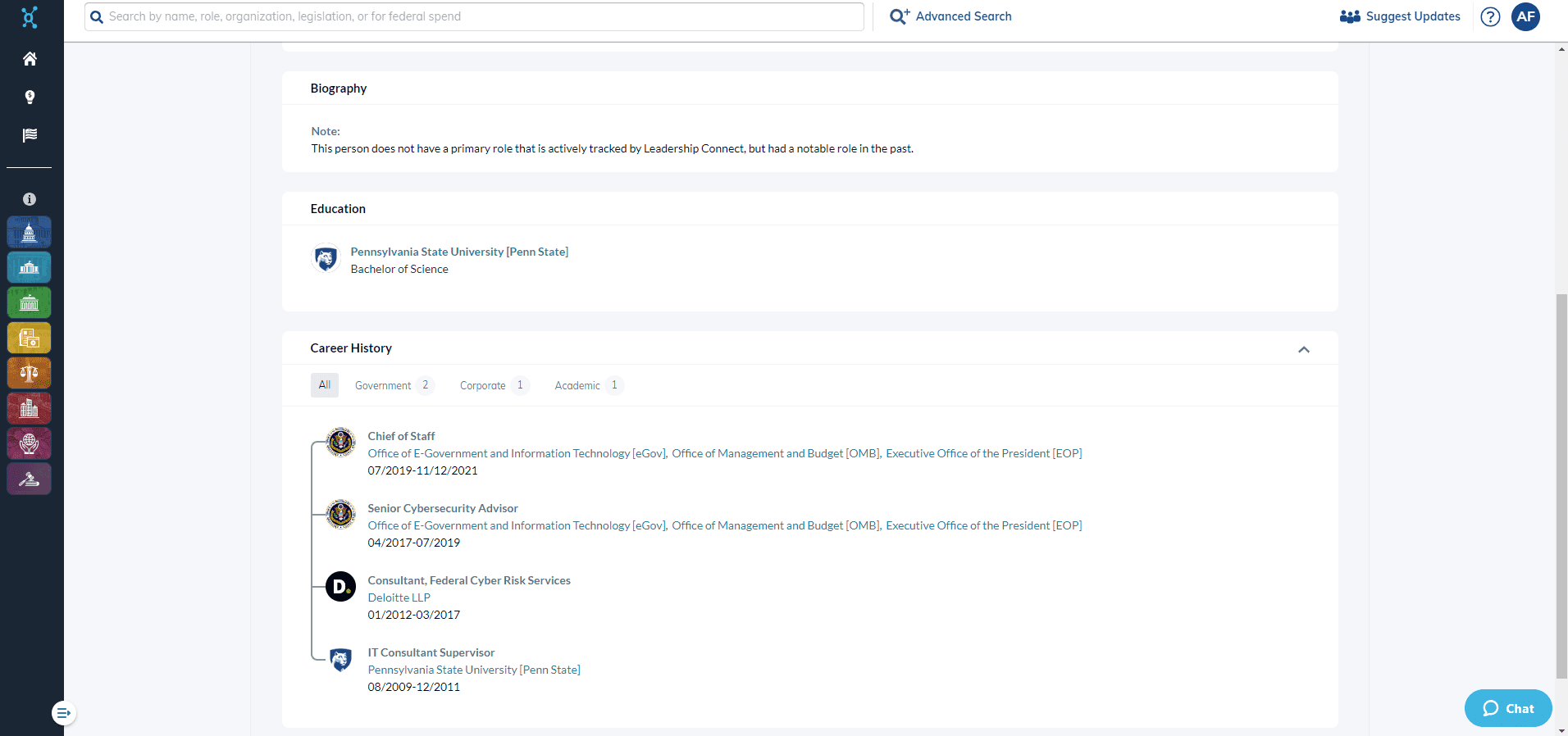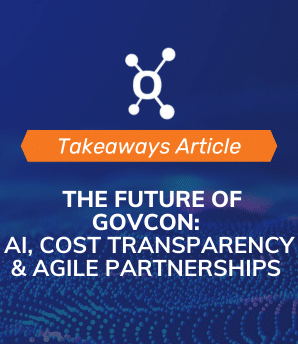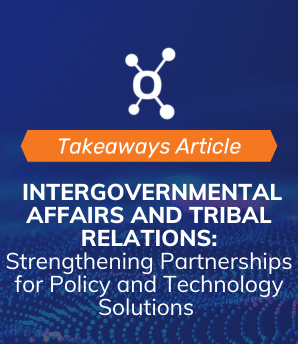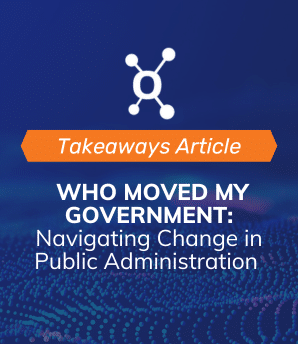Leadership Connect knows the challenges that our government contractor clients face when it comes to the rapid pace of evolving cyber threats. On April 18, we hosted industry leaders to facilitate a conversation regarding the unique challenges and innovative solutions shaping the future of secure government operations.
The expert panel included:
- David Antonio Green: Senior Vice President of Strategic Growth and Sales, Hitatchi Systems Security
- Mahreen Huque: Senior Manager of Cybersecurity Consulting, Ernst and Young
- Jordan Burris: Head of Public Sector Strategy, Socure
- Moderated by Chandler Moore: Director of Government Public Sector, Leadership Connect
Check out the top take-aways below to learn how to tackle cybersecurity in government contracting like a pro. Missed the conversation? Watch the rebroadcast here.
1. Adapt and learn
Enhanced cybersecurity measures in the government contracting space is a rapidly evolving topic that is only increasing in importance. Our panelists stressed that workers need to learn and adapt quickly to stay afloat and mitigate risks.
For example, the panel brought up executive orders and mandates on agencies. They discussed how employees need to digest these orders and implement them quickly and efficiently to properly navigate the requirements to remain competitive in the government contracting field. The best way to do so is to have an open mind, seek out resources to educate yourself, and encourage a broader understanding of cybersecurity measures throughout the industry.
Our panelists also explained that lack of knowledge leads to fear, and fear can open you and your company to risk. Jordan stated the importance of solving the issue of apprehension and fear through education, and sometimes prioritizing that solve over selling is crucial to long-term success.
2. Challenges to prepare for
For our government contracting community, the best way to prepare for cybersecurity changes and threats is to understand the challenges at hand. Here are a few of those challenges as highlighted by our panelists.
- Speed of change: The need to stay ahead has become essential for success. What used to suffice is no longer enough to keep up with the pace of change and potential threats. There’s a huge need to start automated processes for safeguarding along with an active defense approach.
- AI machine learning: This topic frequently scares public sector clients, so government contractors need to be educated enough to mitigate those fears. You can do this by connecting with subject matter experts, tracking AI supply chain, and having an AI inventory in place.
- Funding for implementation: Implementing and utilizing emerging technologies is an expensive undertaking. Federal and civilian agencies face budget constraints and need to better plan for funding implementation.
3. Tips for safeguarding
Our panelists spelled out a few ways to safeguard sensitive information in the age of evolving cyber-attacks.
- People: The people you employ are your first line of defense. With increased training and awareness, you can better prepare your people for the changes and challenges to come. Invest in manpower and lay out clear classified access hierarchies to bolster that first line of defense.
- Process: Start to bake in a plan for cyber implementation and recovery. With frequent audits and a proper internal governance for security, your team can jump straight into action to either implement an emerging technology or quickly recover from risk exposure.
- Technology: Having the right tools and architecture in place to implement cybersecurity measures is the final piece of the puzzle. This can look different in each case, but making sure you have measurements in place to implement technology and train your people on how to use it is the key to navigating the environment.
4. Collaboration
The relationship between government, industry, and academia is crucial to SecureGov and preparing for the future of cyber risk management. With mandates and executive orders, government can take the first steps toward dictating and emphasizing understanding and learning with industry and academia. At the same time, industry needs to focus on better articulating their problem-solving abilities to government, once again prioritizing the solve rather than the sale.
Leadership Connect Pro Tips
Pro tip #1:
How do you find a cybersecurity subject matter expert? Head over to Leadership Connect to find and connect with govcon professionals to make relationships to bolster that first line of defense as discussed above.
Check our Jordan’s Leadership Connect profile. Here you can see his credentials in both government and industry. Looking through his profile and his connections is a great way to learn more about champions in the industry who can advance your knowledge in the SecureGov space.

Pro Tip #2:
The panelists doubled down on the importance of educating yourself on these evolving changes and threats, but how do you start? Well, take that first step by joining more of Leadership Connect’s online webinars. These forums are a great way to expose yourself to these conversations. With our live q&a feature, you can make sure your questions are answered by trusted professionals. Follow our events page to never miss an opportunity to learn more about cybersecurity and emerging technologies.






